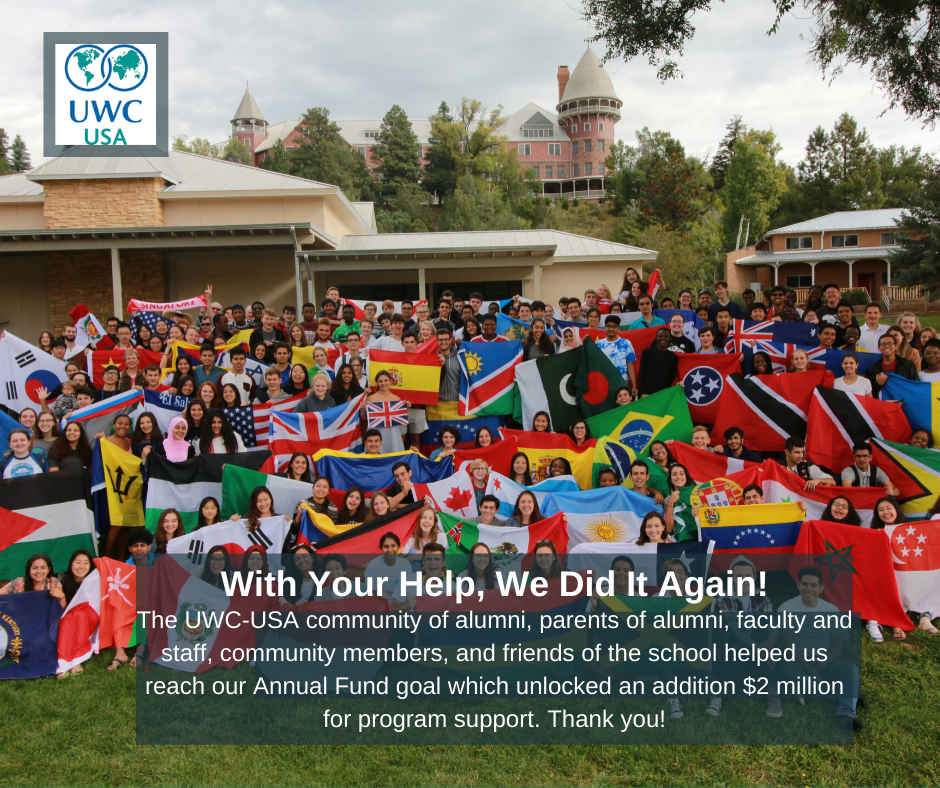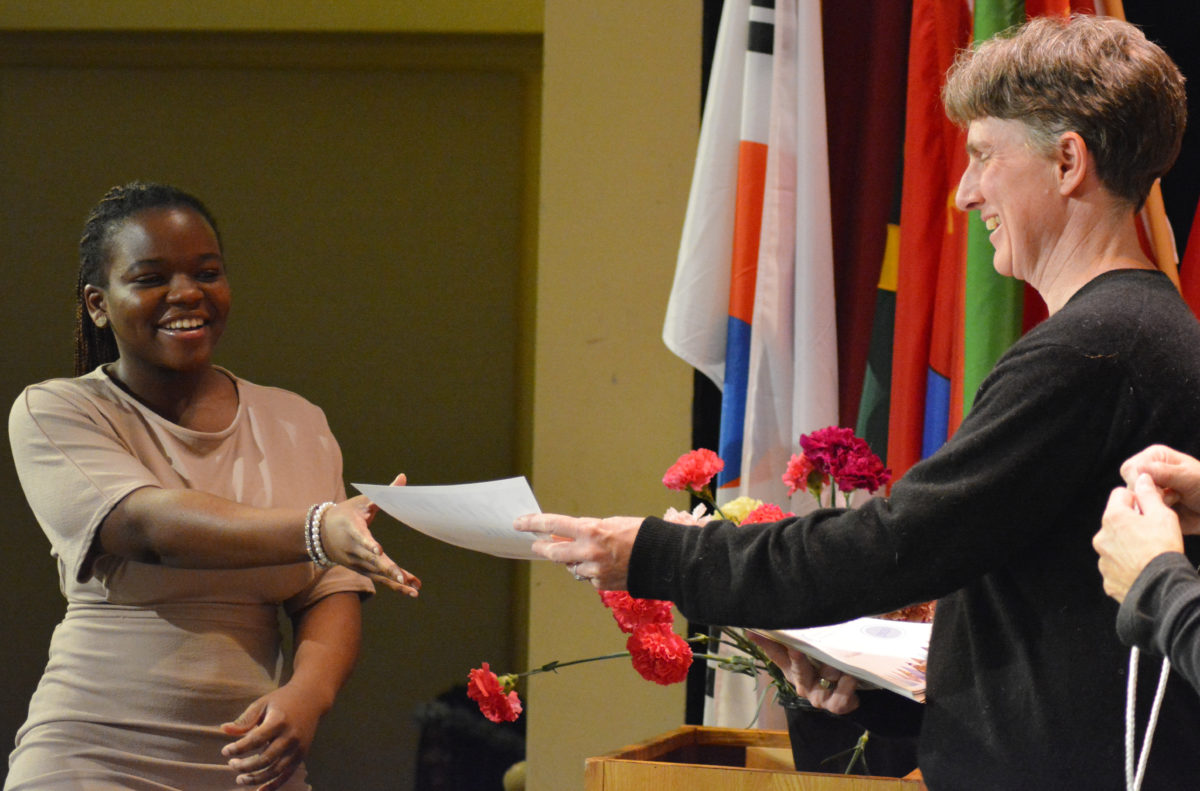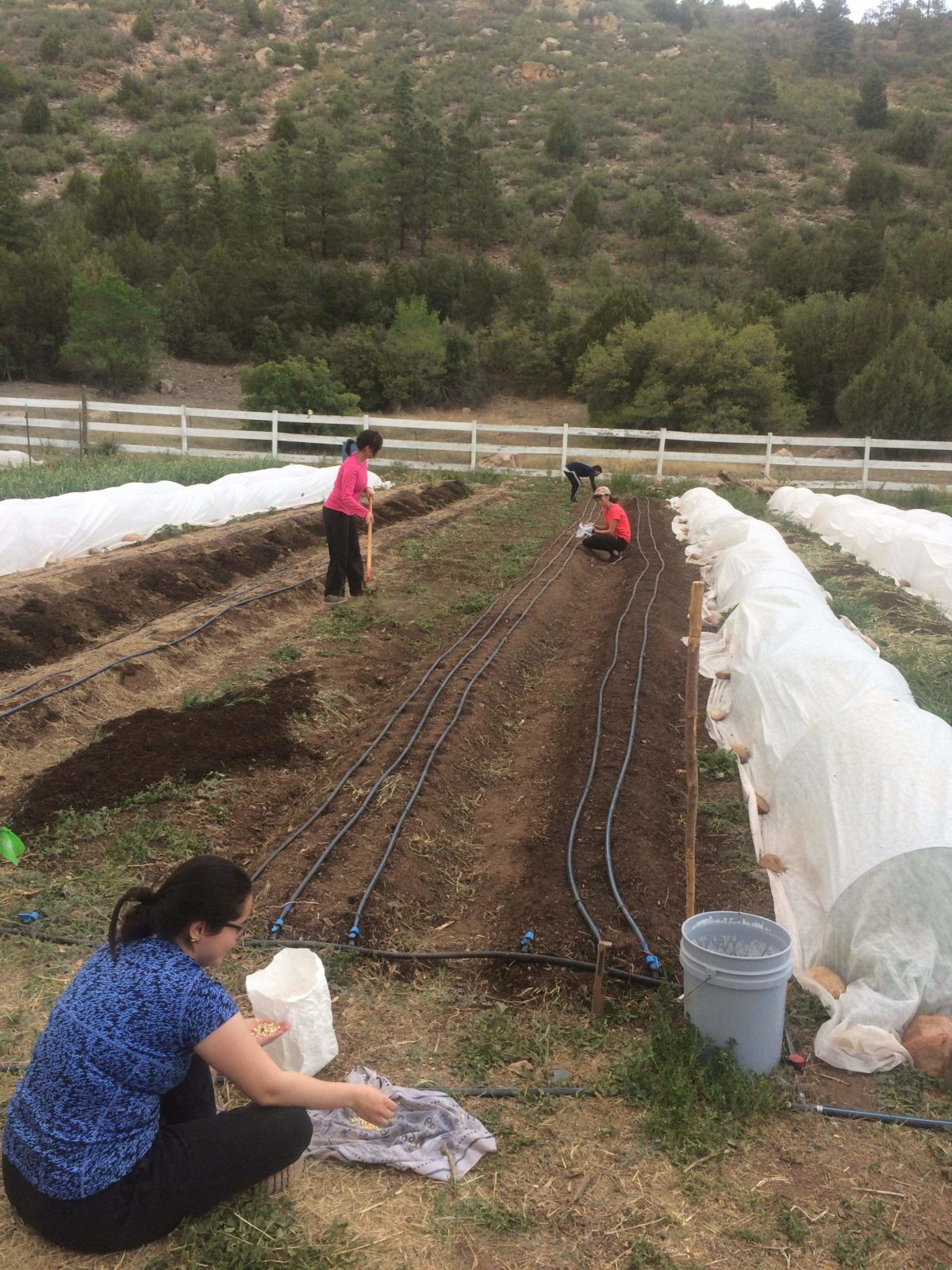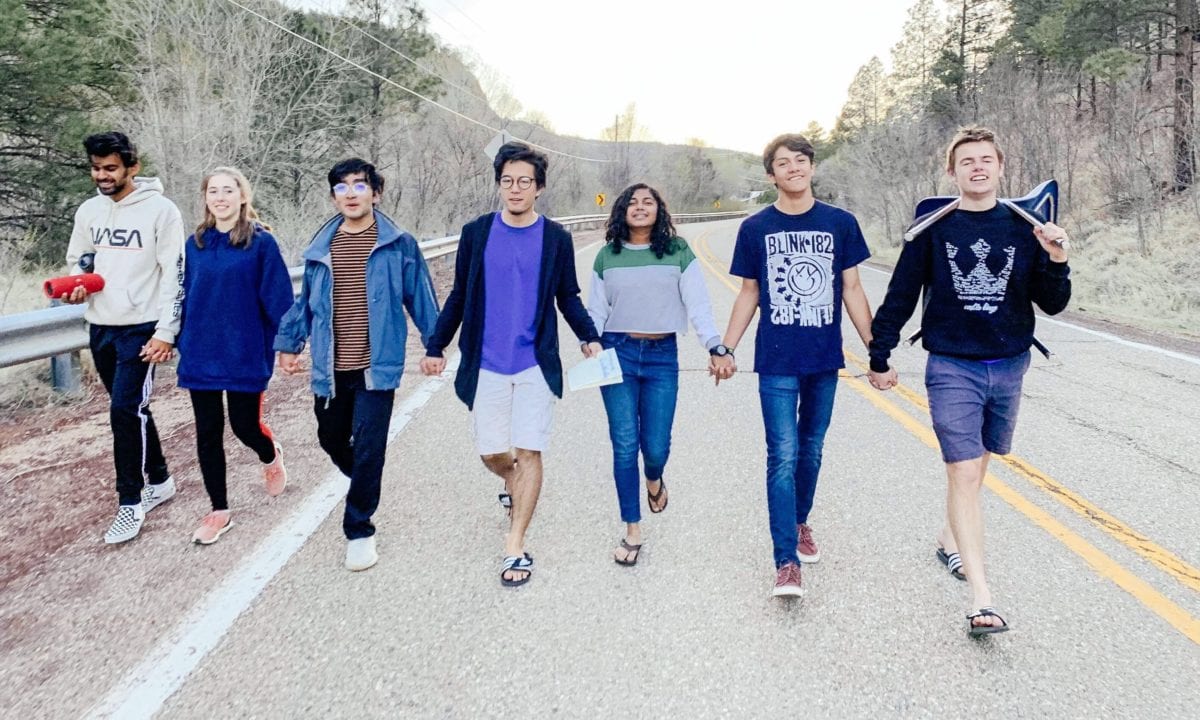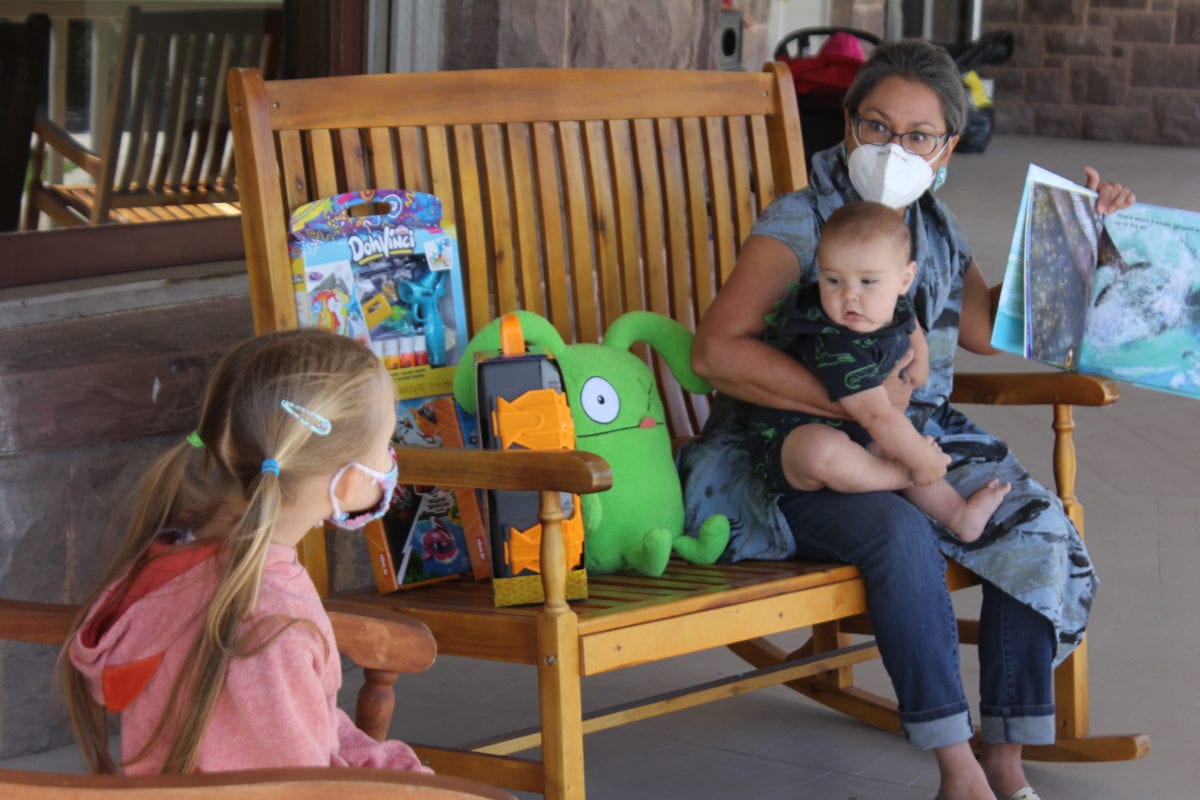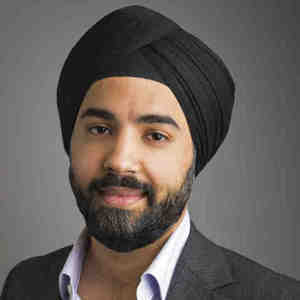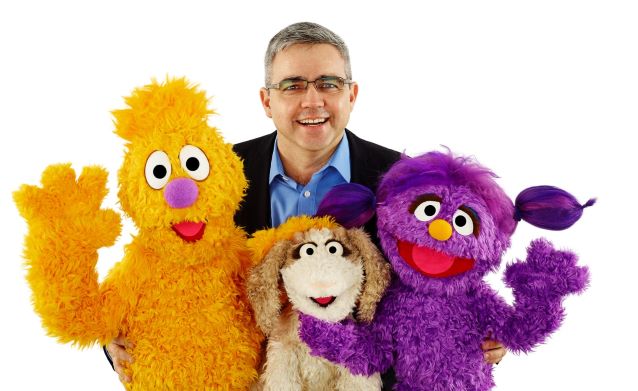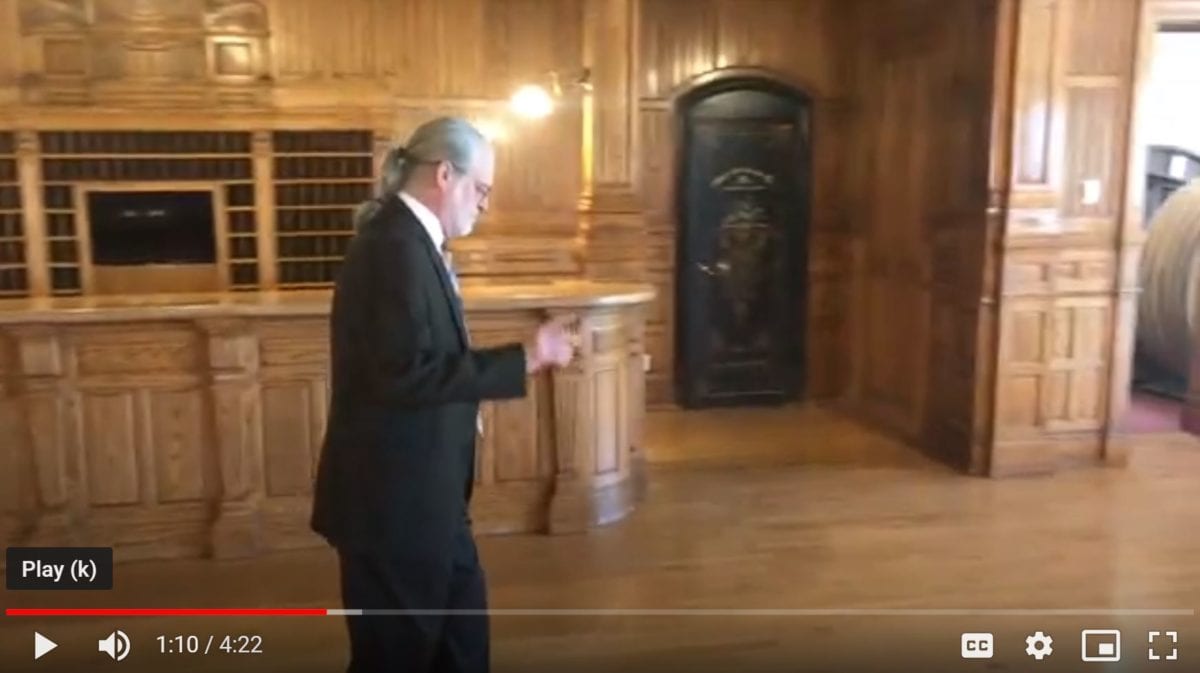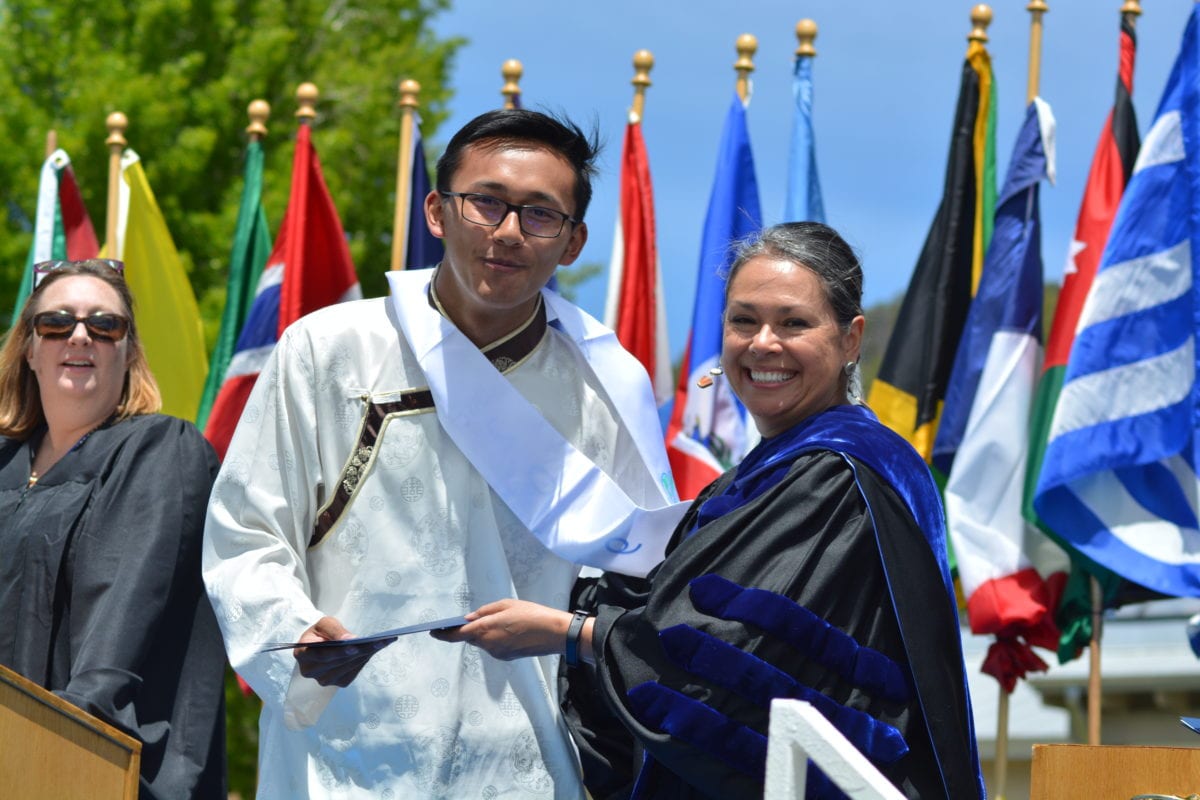Through the generosity of alumni, students, staff, and friends, UWC-USA has successfully met the $2 million Davis Family Challenge Grant which unlocked a match of an additional $2 million to support scholarships and programs for students at the school.
This is the third successful year of the five-year challenge established by the family of UWC-USA benefactor Shelby Davis. “We couldn’t be more grateful,” said UWC-USA President Victoria Mora. ““This year was obviously even more challenging for us and for our community of alumni and friends all over the world. We understand that the disruption of Covid-19 extended to the personal and professional lives of our donors. Yet so many still gave to support our students and our ability to live our mission. This is a testament to the importance of what we do, but it also showed what is possible when we work together to make something good happen. This year’s effort was one for the books. We won’t forget it, and it will only make us work harder to make this education possible in service of our students and of a better world.”
Among alumni, the class of 1986 had a remarkable 64% participation rate. Also notable were members of the classes of ‘87, ‘88, ‘89, and ‘04. The alumni giving rate was 28% overall. Class representatives were particularly active in the closing months of the challenge employing Zoom sessions, class challenges, calls, and emails to encourage their classmates.
The successful completion of this year’s campaign was the result of alumni and members of the UWC-USA community including parents of alumni, students, faculty and staff, community members, and friends of the school around the world.
The funds from the grant will go to the operations of the school to support the student experience, including programs such as wilderness, sustainability, and arts and culture.

